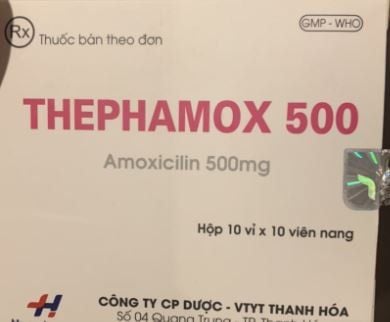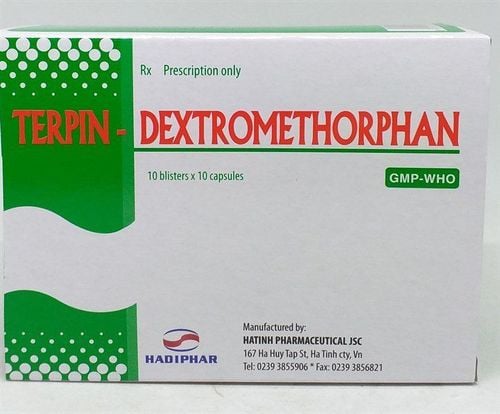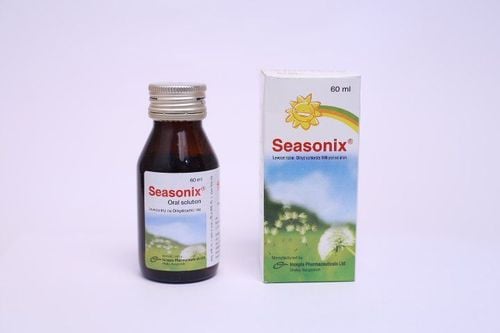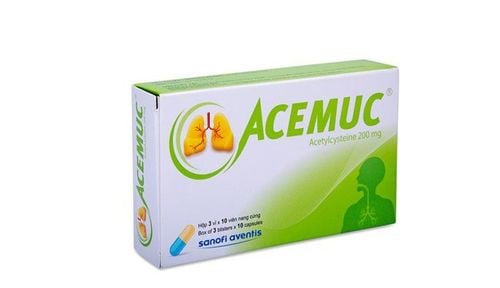This is an automatically translated article.
Laryngopharyngeal reflux (LPR) is a disease in which acid from gastric juice moves against the physiological direction through the esophagus and causes damage to the pharynx - larynx.
1. Who is at risk of laryngopharyngeal reflux?
Anyone is at risk for LPR, however, some individuals are more susceptible to this condition than others:
People with a diet high in fat, spicy foods, tea, coffee ,... People who wear tight clothing or tight belts. Overweight and obese people. People working under stress and stress.
2. What causes pharyngo-laryngeal reflux?
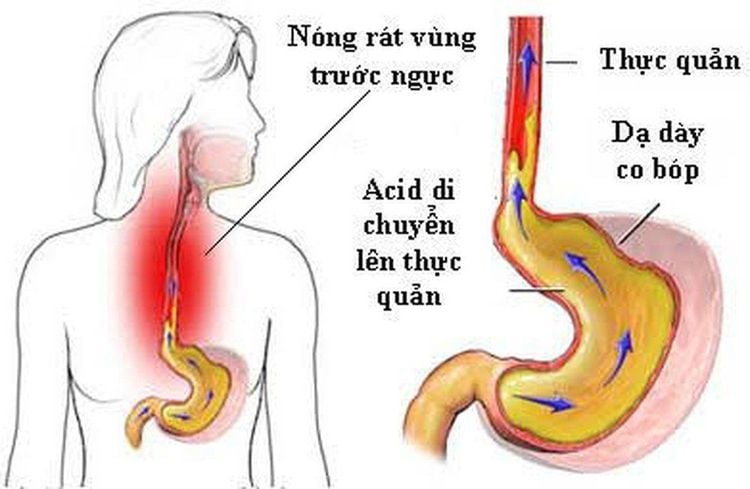
Quá trình trào ngược họng – thanh quản
LPR is caused by gastric juice containing acid being pushed back up the pharynx. When you swallow, food moves in one direction from your throat through your esophagus to your stomach. There is a muscle called the esophageal sphincter that controls the junction between the esophagus and the stomach. This muscle has an important role in preventing reflux.
When this muscle is not working properly, acidic food will move from the stomach and through the esophagus. This phenomenon is called gastroesophageal reflux.
3. What are the symptoms of laryngopharyngeal reflux?
Symptoms of laryngopharyngeal reflux include:
Sore throat. Mild hoarseness Feeling of a lump in the neck. Throat feeling Coughing up mucus in the throat and a feeling of postnasal drip. Chronic cough Difficulty swallowing.
4. Diagnosis of pharyngo-laryngeal reflux?
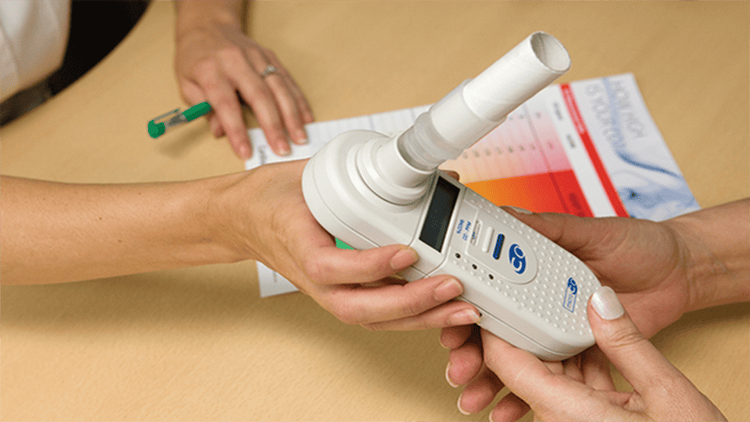
Test vi khuẩn HP chẩn đoán trào ngực họng - thanh quản
Diagnosis of laryngopharyngeal reflux is usually based on the patient's uncomfortable symptoms or the doctor's examination to detect edema in the back of the throat. In many cases, no tests are needed to make a diagnosis.
In some cases where it is not clear, the doctor may order a number of tests including:
Endoscopy of the pharynx - larynx, endoscopy of the stomach - esophagus. X-ray with oral Barium (now rarely used) Test gastric pH through balloon test HP test
5. Complications of laryngopharyngeal reflux
When the disease progresses for a long time, it can lead to the following complications:
Respiratory disorders such as persistent cough Continuous recurrent pneumonia Persistent laryngitis Abnormalities in the oropharynx.
6. Treatment of laryngopharyngeal reflux disease?

Tránh uống rượu bia,hút thuốc lá cũng có thể điều trị bệnh trào ngược họng – thanh quản
Most cases of laryngopharyngeal reflux do not require drug treatment and can be started with lifestyle changes, including:
Maintaining a balanced diet (reducing fatty acids, grease, spicy foods, carbonated drinks, coffee, increased vegetables and fruits, ...) Eat small meals, don't eat too full. Lose weight Avoid alcohol, tobacco and coffee. Do not eat too late, do not eat anything 2 hours before going to bed. Do not wear clothes that are too tight Lie with your head slightly elevated about 15-20 degrees above the bed. Avoid clearing your throat. In cases where lifestyle changes do not respond. Your doctor may prescribe some supportive drugs:
Antihistamines H2 Proton pump inhibitors Rapid gastric emptying. Drugs to neutralize gastric acid, Vinmec International General Hospital examines and treats common nasopharyngitis diseases, head and neck tumors, congenital malformations of the ear, nose and throat area by internal and external methods. the most optimal ward for patients, both children and adults. Coming to Vinmec International General Hospital, patients will receive a direct, dedicated and professional examination from a team of qualified and experienced medical staff.
To register for examination and treatment at Vinmec International General Hospital, you can contact Vinmec Health System nationwide, or register online HERE




